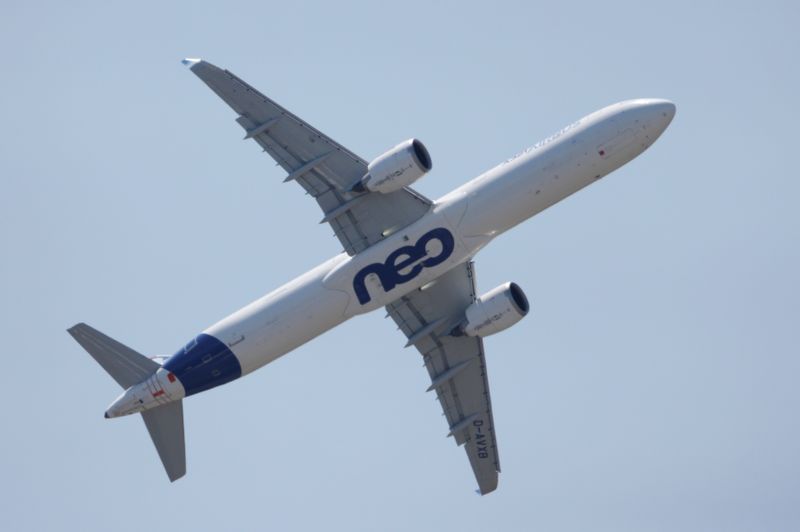By Tim Hepher
PARIS (Reuters) - Boeing (NYSE:BA) Co has raised concerns over the design of arch-rival Airbus' newest narrow-body jet, the A321XLR, saying a novel type of fuel tank could pose fire risks.
The U.S. plane giant's intervention is not without precedent in a global system that regularly allows manufacturers to chime in whenever safety rules are being interpreted in a way that might affect the rest of the industry.
But it comes at a pivotal moment as Boeing emerges from a two-year safety crisis over its competing 737 MAX, and Airbus faces its own crucial test of the tougher mood expected from regulators worldwide following the MAX's 20-month grounding.
In a submission to the European Union Aviation Safety Agency (EASA), Boeing said the architecture of a fuel tank intended to increase the A321XLR's range "presents many potential hazards."
The debate surrounds the hot-selling A321XLR's main marketing point - the longest range of any single-aisle jet.
In most jets, fuel is carried in wings and central tanks.
To meet demand for longer routes, Airbus has already added optional extra fuel tanks inside the cargo bay of some A321s.
For the A321XLR, Airbus plans to eke out more space for fuel by moulding one tank directly into the fuselage, meaning its shape would follow the contours of the jet and carry more fuel.
The concept caught the attention of EASA which in January said it would impose special conditions to keep passengers safe.
"An integral fuselage fuel tank exposed to an external fire, if not adequately protected, may not provide enough time for the
passengers to safely evacuate the aircraft," it said.
In comments to EASA first reported by Flightglobal, Boeing cited risks if a jet veers off a runway or its wheels fail.
"Public consultation is part-and-parcel of an aircraft development programme," an Airbus spokesman said, adding any issues raised would be tackled together with regulators.
COMMERCIAL STAKES
Such technical exchanges rarely capture attention. But a battered aerospace industry is on edge after the MAX crisis, compounded by COVID-19, shook confidence in aviation.
Commercial stakes are also high.
One industry source familiar with the project warned any extended wrangle over certification could delay the A321XLR's service entry from "late 2023" to 2024 or beyond.
Should that happen, sources say Boeing is expected to encourage airlines to wait a few years longer for a potential all-new model that insiders say would leapfrog the A321XLR.
While insisting they never compete on safety, Airbus and Boeing have a record of goading each other in the past over issues like novel flight computers on the Airbus A320 or European claims that four engines were safer than the 777's two.
Fuel tanks have provoked particularly sharp disagreement.
In 2001, the U.S. Federal Aviation Administration triggered changes to the design of fuel tanks worldwide, five years after a Boeing 747 exploded in mid-air.
Investigators said TWA 800 was brought down by a fuel-tank explosion in the presence of unwanted oxygen, but Airbus officials maintained their own jets were less at risk.
